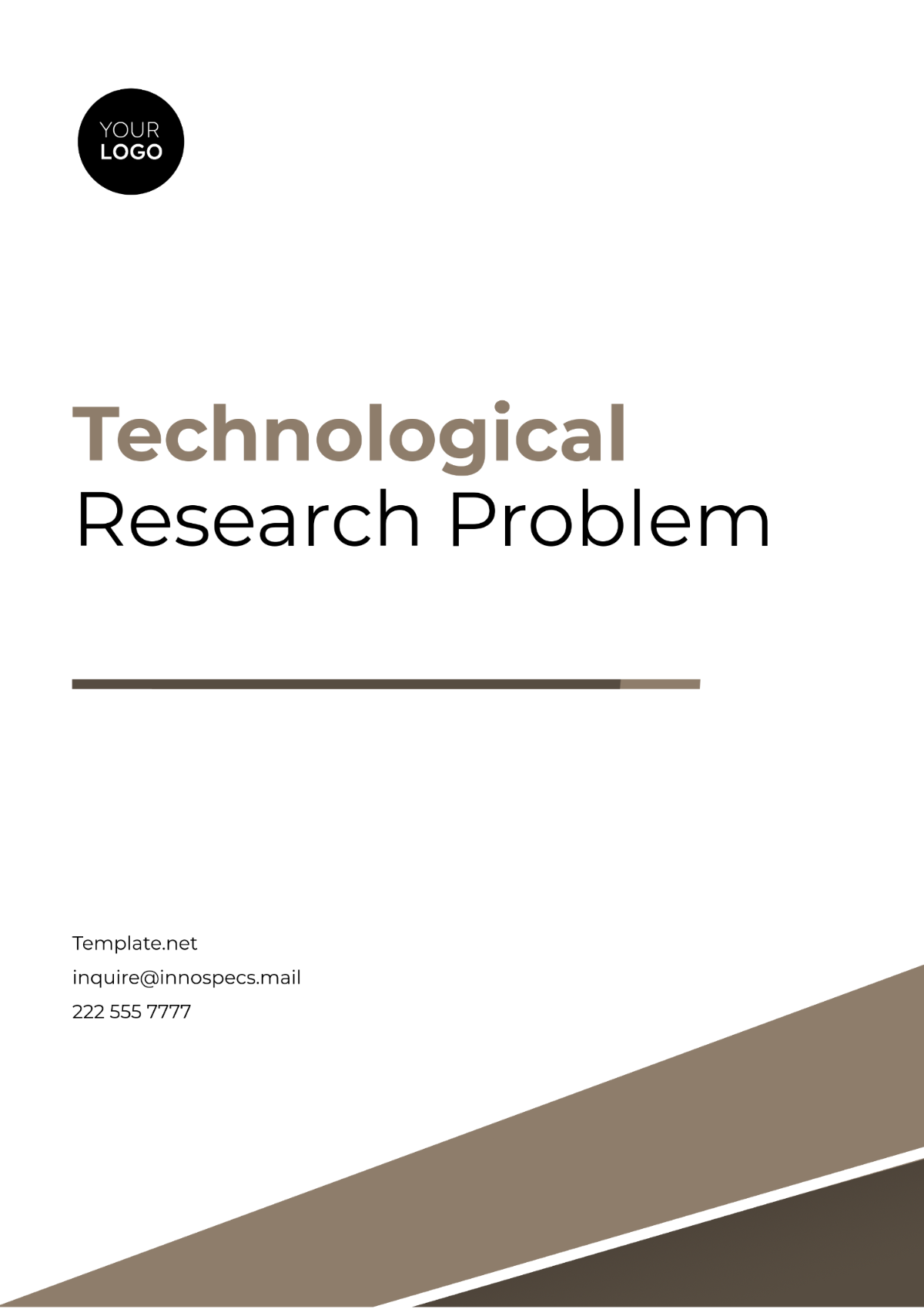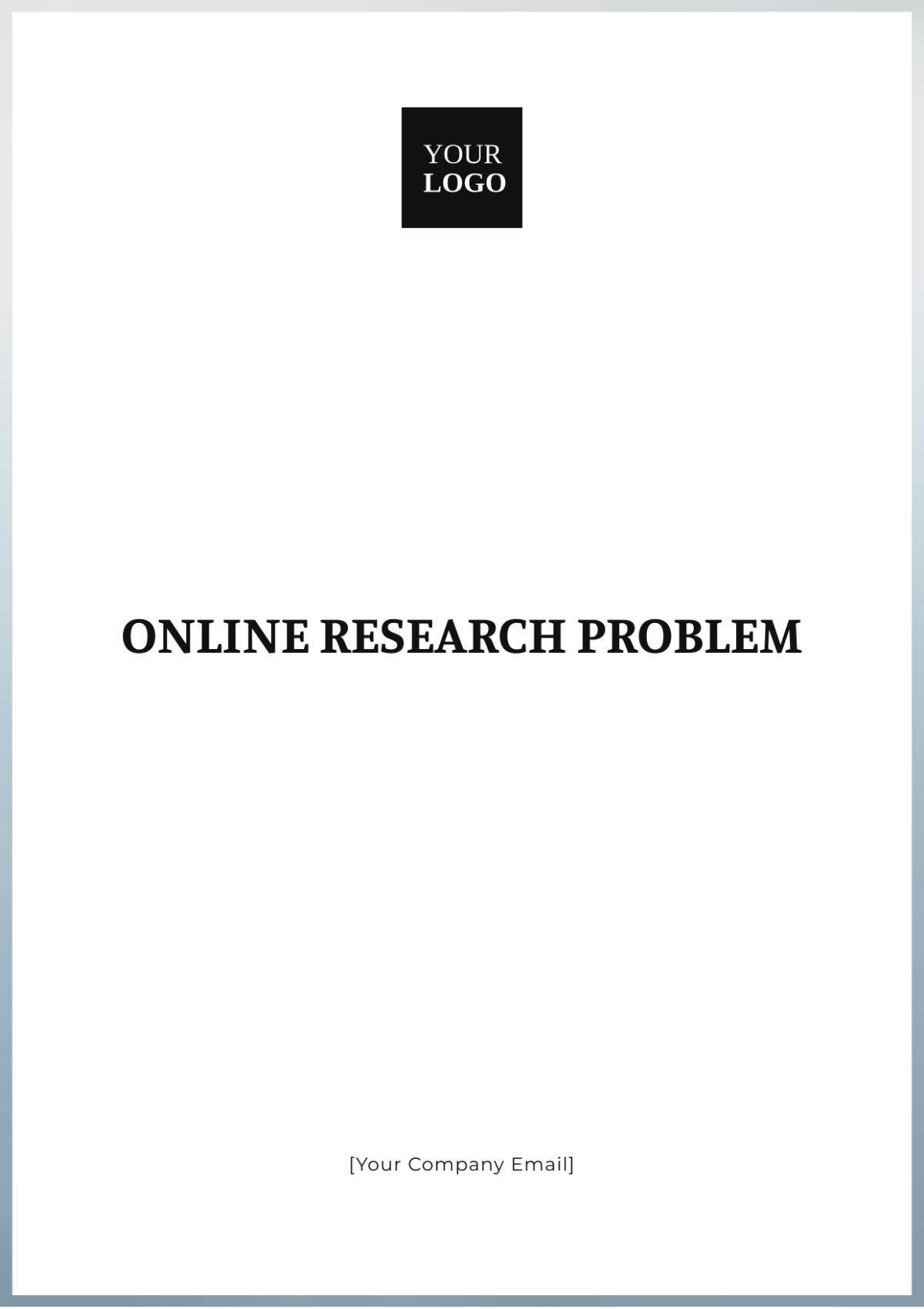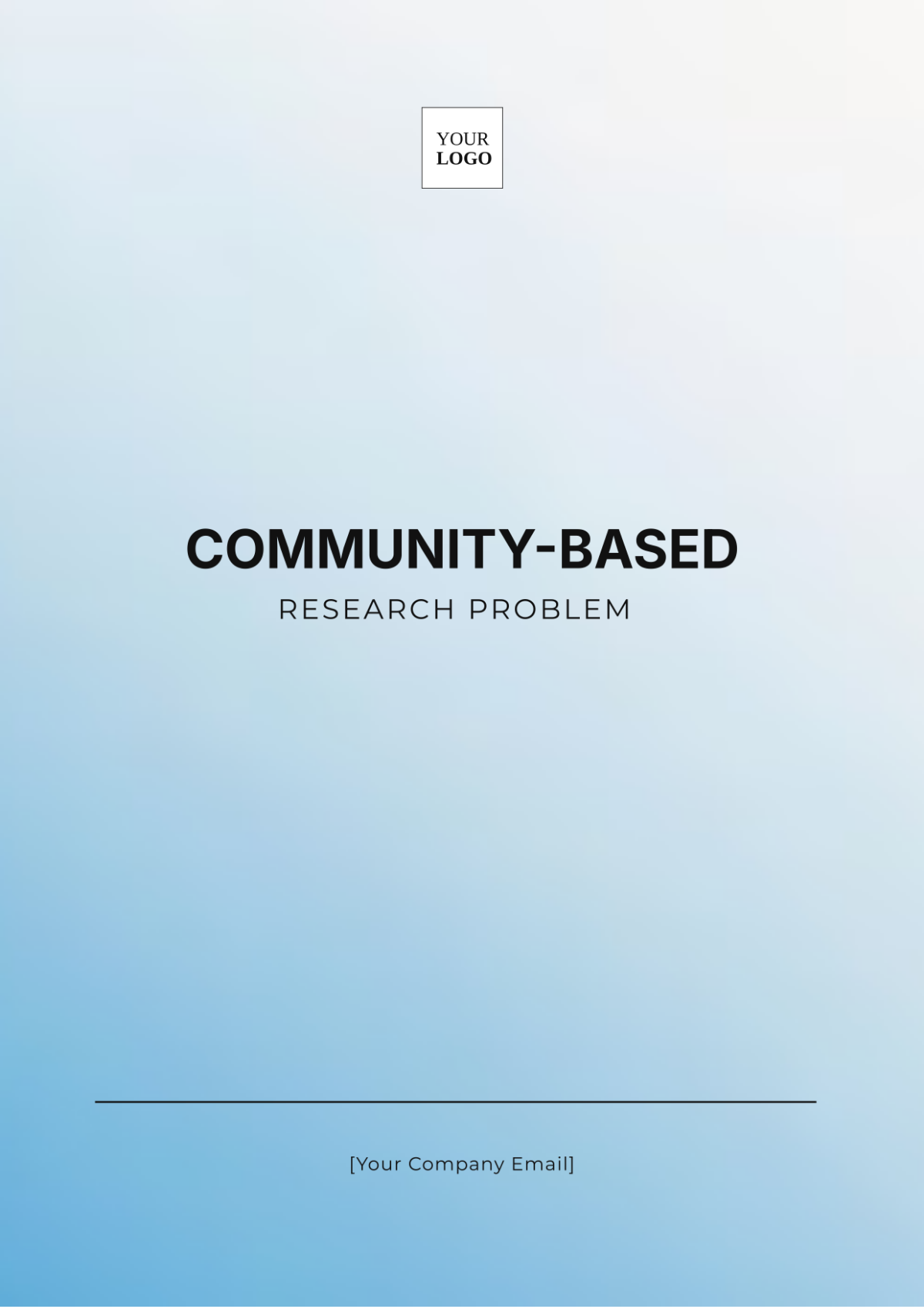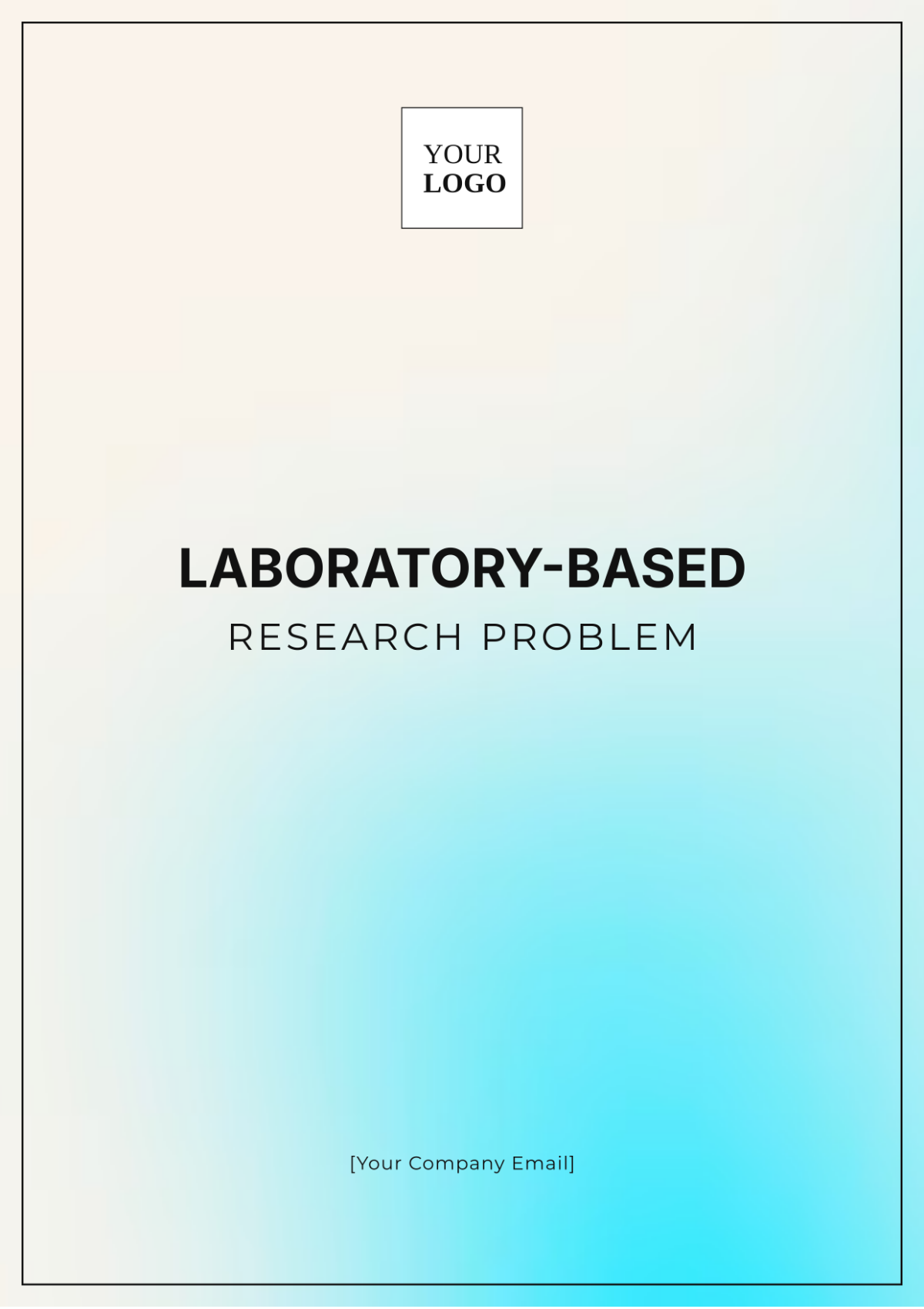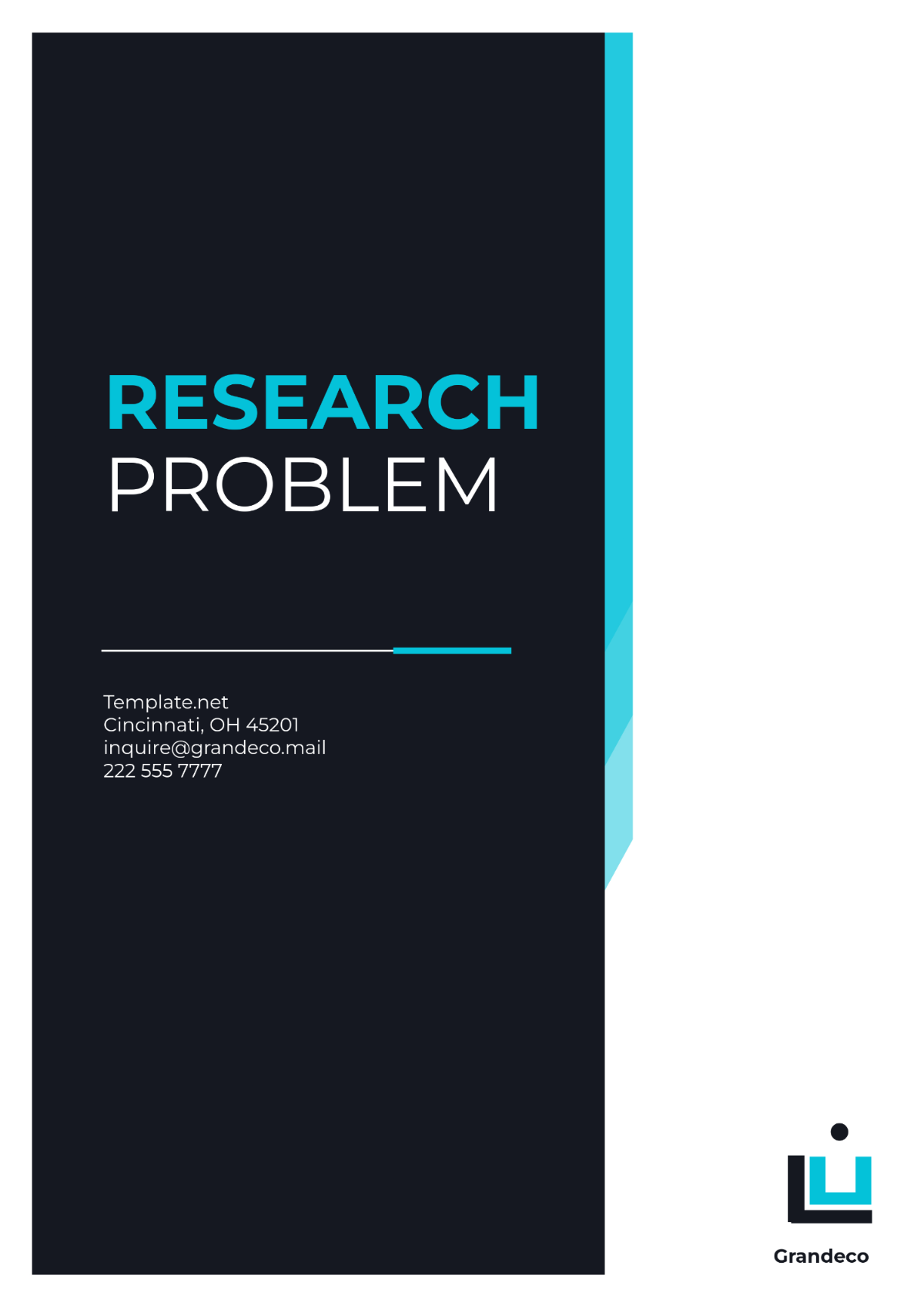Study Layout Research Design
Prepared By: [Your Name]
I. Introduction
A. Background and Rationale
The rise of remote work, accelerated by the COVID-19 pandemic, has transformed traditional work environments. Organizations are keen to understand how this shift impacts employee productivity and job satisfaction to optimize their remote work strategies and ensure long-term effectiveness.
B. Research Problem
Despite the widespread adoption of remote work, its impact on employee productivity and job satisfaction is not well understood. There is a need to elucidate how remote work influences these outcomes and what factors mediate these effects.
C. Objectives
To analyze the impact of remote work on employee productivity.
To assess how remote work affects job satisfaction.
To identify and evaluate mediating factors such as work-life balance and technology use in the remote work context.
II. Literature Review
A. Overview of Existing Research
Research on the impact of remote work reveals mixed results, with some studies indicating enhanced productivity and job satisfaction due to fewer office distractions and better work-life balance, while others highlight potential declines in productivity and job satisfaction due to reduced supervision and social isolation.
B. Gap in the Literature
There is a lack of integrated studies that simultaneously address both productivity and job satisfaction in the remote work context. Moreover, there is insufficient research on how mediating factors, such as work-life balance and technology use, interact to influence these outcomes.
C. Research Questions/Hypotheses
Research Questions
How does remote work affect employee productivity?
What is the effect of remote work on job satisfaction?
What factors mediate the relationship between remote work and productivity/job satisfaction?
Hypotheses
Remote work positively influences employee productivity.
Remote work enhances job satisfaction by improving work-life balance.
The relationship between remote work and productivity/job satisfaction is mediated by factors such as technology use and work-life balance.
III. Methodology
A. Research Design
A mixed-methods approach will be employed, integrating both quantitative surveys and qualitative interviews to provide a comprehensive understanding of the effects of remote work.
B. Participants/Sample
The study will involve 200 employees working remotely across various industries for the quantitative survey. Additionally, 20 participants will be selected for in-depth qualitative interviews to gain deeper insights.
C. Data Collection
Quantitative Data
Collected through an online survey using validated instruments to measure productivity and job satisfaction.
Qualitative Data
Gathered through semi-structured interviews to explore participants’ experiences and perspectives in detail.
D. Data Analysis
Quantitative Analysis
Statistical methods such as regression analysis will be used to determine the impact of remote work on productivity and job satisfaction.
Qualitative Analysis
Thematic analysis will be applied to identify key themes and factors from interview data.
IV. Ethical Considerations
Informed Consent
Participants will receive comprehensive information about the study's aim, the procedures involved, and their responsibilities, and they must sign a consent form confirming their understanding and agreement before participating.
Confidentiality
The information collected from each participant will be anonymized to prevent identification, and it will be securely stored with multiple safeguards to protect against unauthorized access, ensuring the confidentiality of the participants.
Ethical Approval
The research study has received formal approval from the Institutional Review Board, commonly abbreviated as IRB, at XYZ University.
V. Timeline
Study Schedule
Month 1: Develop study design and survey instruments.
Month 2: Recruit participants and collect data.
Month 3: Analyze data.
Month 4: Write the report and disseminate findings.
VI. Budget and Resources
Funding
A budget of $10,000 will be allocated for survey platform fees, participant incentives, and research assistant salaries.
Resources
Necessary resources include survey software, recording equipment for interviews, and data analysis tools.
VII. Expected Outcomes
Anticipated Results
The study is expected to reveal that remote work positively affects productivity and job satisfaction, with work-life balance and technology use playing significant mediating roles.
Implications
The findings will provide valuable insights for organizations to develop and refine remote work policies, enhancing both employee satisfaction and productivity.
VIII. References
Smith, J. (2022). The Effects of Remote Work on Productivity. Journal of Business Research, 45(3), 123-135.
Doe, A., & Johnson, L. (2021). Job Satisfaction in the Remote Work Era. Human Resources Journal, 30(4), 456-470.


















